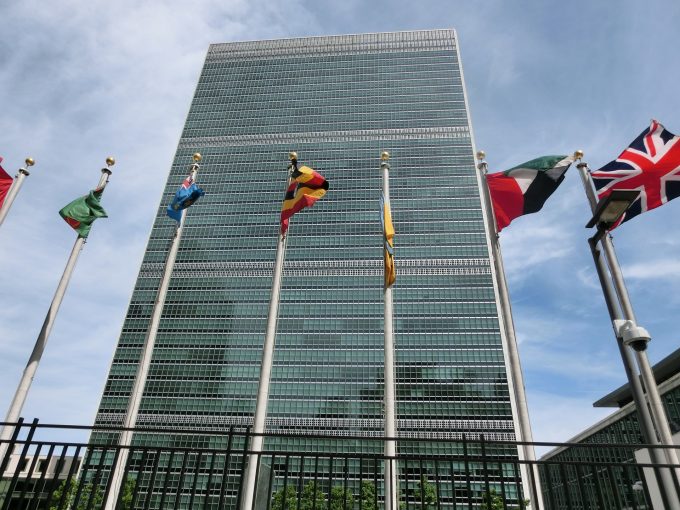RMIT University today launches a first-of-its-kind Ethical Cities open online course at the UN’s global cities summit to connect people around the world with ethical concept and practice for cities.

RMIT PhD Candidate Sandra Moye, UNGCCP Director Elizabeth Ryan, Professor Ralph Horne, and the Mayor of Medellín and his delegates at Habitat III in Quito, Ecuador (left to right). Medellín is a signatory city to the UN Global Compact.
Created in partnership by RMIT and the UN Global Compact Cities Programme (UNGCCP), the Ethical Cities course is a principle-based collaborative approach that engages with various stakeholders including government actors, private sector and civil society in shaping a shared vision for their city.
More than 47,000 delegates gathering in Quito, Ecuador for the third UN Conference on Housing and Sustainable Urban Development (Habitat III) are there to witness the unveiling of the New Urban Agenda – a plan to shape urban development over the next two decades.
RMIT Vice-Chancellor and President, Martin Bean CBE, has been engaged in the course’s development from the beginning, delivering the keynote address at the Ethical Cities Urban Thinkers Campus in Melbourne, Australia, in February 2016.
“I asked the team at the UN Global Compact Cities Programme to consider how it may be possible to share their work internationally,” he said. “I am delighted they have worked with RMIT to develop this very important MOOC hosted on the FutureLearn Platform.”
Lead educators for the course are Dr Brendan Barrett, Research Fellow at UNGCCP, and Professor Ralph Horne, Deputy Pro Vice-Chancellor, Research and Innovation for RMIT’s College of Design and Social Context.
Addressing the Plenary of Habitat III in Quito, Horne emphasised the critical role universities, such as RMIT have in partnering with city governments, the private sector and civil society to deliver the ethical cities.
“We need these partnerships as part of the New Urban Agenda, adopted by the UN and its signatory nations at Habitat III to secure future urban prosperity and sustainability,” he said.
“As a university located in the centre of the world’s most liveable city, RMIT has developed a critical mass of expertise in this area, particularly through the RMIT Centre for Urban Research,” he said.
Barrett said Habitat III was the perfect event for the launch of this MOOC. “The course is designed for anyone interested in urban issues, running for five weeks from 14 November onwards,” he said.
“We also see the course making an important contribution in taking the New Urban Agenda forward.”
RMIT and the UNGCCP have contributed to this New Urban Agenda over the past year under the framework of the World Urban Campaign, organising the Urban Thinkers Campus in collaboration with World Vision International in February and an Urban Innovation Forum at RMIT Europe organised with UN Habitat in Barcelona in July.
Registration for the Ethical Cities Massive Open Online Course is now open.
For interviews: Dr Brendan Barrett (03) 9925 2637 or 0497 585 267.
For general media enquiries: David Glanz, (03) 9925 2807 or 0438 547 723.
Article can also be viewed on RMIT’s website and the UN Global Compact Cities Programme.





